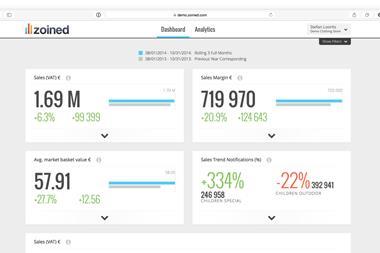
Rising work pressures are having a detrimental impact on people’s wellbeing with many eating comfort food, smoking or turning to alcohol to cope with stress, according to Mintel.
As well as these ‘vices’, many struggled to make time to take care of their health, it claimed, while almost half (47%) worked more hours than they were contracted to, with 43% checking or answering work emails at home.
Mintel said the results of its latest research presented opportunities for forward-thinking companies to find creative ways of encouraging their staff to adopt healthier lifestyles. In turn, this could result in better retention and loyalty.
“As a nation of food lovers, Britons tend to turn to comfort foods and their favourite alcoholic drink when trying to combat work stress,” said Mintel senior consumer lifestyle analyst Ina Mitskavets.
“That those that are self-employed and people working outside report lower levels of stress suggests that organising work events away from the main place of work, be it volunteering, charitable activities or sports outings could provide workers with a more varied routine and lead to a greater sense of wellbeing.”
Mintel’s research showed eating comfort food was the number one way in which British workers dealt with stress at work, with 33% saying they had done so in the past 12 months, followed by 30% saying they had turned to alcohol and 15% saying they had smoked or ‘vaped’ to help cope.
The option of exercise to deal with stress was taken up by 29% of people, with 30% talking to someone about their stress with 7% seeking help such as a trained counsellor or medical professional.
Almost a third (30%) of people said they had not experienced stress at work in the past 12 months while half (49%) of self-employed workers and 41% of those who worked outside did not suffer from workplace stress.
“Rising work pressures are having a detrimental impact on people’s wellbeing,” added Mitskavets. “But this presents forward-thinking companies with opportunities to come up with creative ways of encouraging employees to embrace a healthier balance, which could result in greater staff retention and loyalty.
“Amongst the cost-efficient ways of making an immediate difference in employees’ wellbeing are bans on using work email during breaks, such as at lunch, after work or on weekends, and partnerships with companies in the health, wellness and fitness fields.”
Mintel’s research showed that 45% of British workers said they sometimes struggled to find time to take care of their health, 10% admitted they skipped lunch most of the time while 41% worked through lunch at least once a week. For those who took their lunch break, the most popular activities were running errands (67%), researching products (65%) and shopping (62%).
“For modern workers time is a precious commodity, which they cannot afford to waste. Services that give them back the time they could spend on their hobbies or with their loved ones are likely to hold strong appeal.” Mitskavets concluded.



















No comments yet